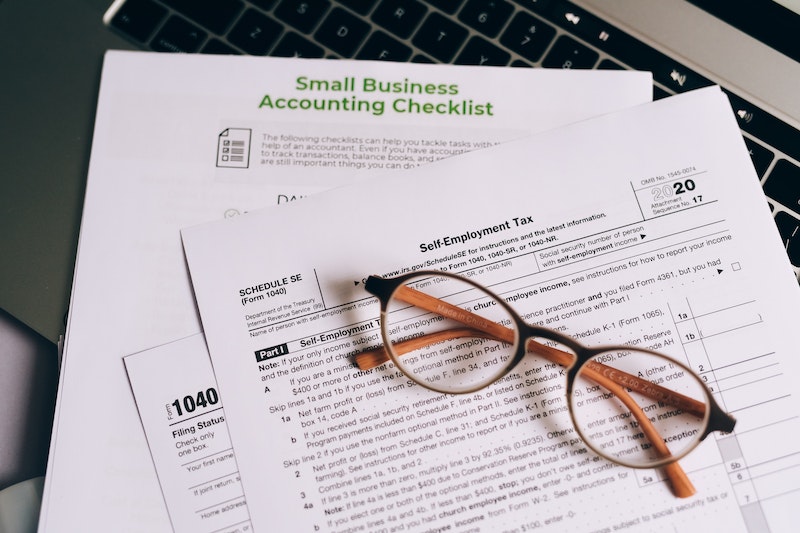ACCA vs. CPA vs. CFA – Which Qualification to Get?

87% of HR managers indicate that hiring professionals for financial planning and analysis, financial reporting, and general accounting is the most challenging. [1]
While demand is high, competition for the highest-paying roles can be particularly fierce – and working towards a relevant qualification gives you an edge over other applications.
It boosts your credentials and proves your expertise in a specialized field. And professionals with desirable certifications are more likely to earn promotions, bonuses, and raises.
You may feel conflicted between pursuing three of the most sought-after qualifications in the job market – ACCA, CPA, and CFA.
In this post, we’ll look deeper into each qualification to help you decide which certification is best for you.

What is ACCA?
ACCA stands for the Association of Chartered Certified Accountants – a global body with 241,000 members in 178 countries. [2] Founded in 1904, ACCA maintains its principal administrative office in Glasgow and its headquarters in London.
Members of the organization hold the title Chartered Certified Accountants and can use the designation ACCA after their name.
Obtaining an ACCA qualification requires you to:
- Enroll for the course and pass a minimum of 13 exams.
You may apply for exemptions based on your qualifications and experience.
You do not need any finance or accounting qualification to apply for an ACCA membership. However, applicants with no relevant qualifications should start at the Foundation level and pass additional exams to get a solid grasp of financial reporting and management.
Applicants with a finance and accounting degree or relevant experience can skip the Foundation exams and proceed with the ACCA exam.
The ACCA exam has 13 papers enumerated below.
Applied Knowledge Exams
- Business and Technology (BT)
- Management Accounting (MA)
- Financial Accounting (FA)
Applied Skills Exams
- Corporate and Business Law (LW)
- Performance Management (PM)
- Taxation (TX)
- Financial Reporting (FR)
- Audit and Assurance (AA)
- Financial Management (FM)
Strategic Professional Exams – Essentials
- Strategic Business Leader (SBL)
- Strategic Business Reporting (SBR)
Strategic Professional Exams – Optional
For the optional section, you can choose two papers to specialize in to complete your ACCA course.
- Advanced Financial Management (AFM)
- Advanced Performance Management (APM)
- Advanced Taxation (ATX)
- Advanced Audit and Assurance (AAA)
There are four exam windows for taking the ACCA exams – March, June, September, and December. You can take the exam in a local test center or apply for computer-based exams or CBE. CBEs can be session or on-demand exams.
- Finish the Ethics and Professional Skills module
- Complete the Professional Experience Requirements by:
- Satisfying the 36 months of supervised experience
- Complete 9 performance objectives – 5 Essentials and 4 Technical objectives
- Update your My Experience record and report your progress in working toward your Professional Experience Requirement
Receiving the ACCA designation takes three to four years on average.

What is a Certified Public Accountant?
Certified Public Accountant is another accreditation to boost your accounting qualification. CPAs sign audited financial statements, prepare tax returns, and perform other financial services that require accounting knowledge.
While most people think of the US when referring to CPA, each country grants the CPA title to aspiring accountants within their territory. For instance, we have CPA Canada, CPA Australia, and Hong Kong.
Requirements for granting the designation include an accounting degree, passing the CPA exam, and a certain number of years of experience in a relevant role.
Becoming a CPA in Another Country
Since each national body oversees the process of granting certifications, a qualification in one country may not be transferable to another. For instance, a CPA in Vietnam who moves to the US cannot practice as a CPA without complying with the US CPA requirements.
In some cases, professional bodies for some countries enter into a Mutual Recognition Agreement to earn the CPA designation in another country faster.
The American Institute of Certified Public Accountants (AICPA), for instance, allows members in good standing from the South African Institute of Chartered Accountants, CPA Canada, and CPA Ireland to become a member by passing the International Qualifying Examination and complying with other relevant requirements like taking additional courses or having a relevant work experience. [3]
Even if there is no Mutual Recognition Agreement, you can still apply for a CPA designation in another country, but the process often takes longer.
What is a US Certified Public Accountant?
AICPA has been around since 1887 and is the largest member association in the world with over 428,000 members [4] – one reason why most people think of US CPAs as the only CPA designation.
To get a US CPA designation, you have to comply with three requirements:
Education
Most states require at least 150 semester hours of education. States will also require the number of hours for accounting-specific study. Students often need to earn a four-year and 1-year master’s degrees to comply with the educational requirements.
Pass the CPA Exam
The US CPA exam is a computer-based test with four sections.
- Auditing and Attestation (AUD)
- Business Environment and Concepts (BEC)
- Financial Accounting and Reporting (FAR)
- Regulation (REG)
With the new computer-based exam format, CPA exams are available all year round, subject to site availability.
The National Association of State Boards of Accountancy serves the needs of each state board. However, the US. State Boards of Accountancy have jurisdiction over the requirements and rules for getting the CPA designation in each state.
Aside from education qualifications, state boards have different eligibility requirements for taking the exam, which include [5]:
- Residency
- Citizenship
- Social Security
- Participation in International Programs
Earn Professional Experience
Most states require applicants to have experience in public accounting of at least two years. Some accounting bodies may consider non-public accounting experience, but the required experience may be longer.
Passing all sections of the CPA exam takes about 9 to 14 months.
Getting Your Certificate and License
Some states have a one-tier system where you should fulfill the experience requirements and pass the exam to obtain the certificate and your license.
Meanwhile, others have a two-tier system where you can receive the certificate once you pass the CPA exam successfully. However, you can only get the license after completing the required experience in a relevant field. If you’re applying for a US CPA, contact the state board where you plan to apply for a license to understand their requirements.
The following sections will compare US CPA against CFA and ACCA requirements.

What is a Chartered Financial Analyst?
CFA stands for Chartered Financial Analyst, one of the most competitive financial credentials recognized internationally. It attests to your ability to handle a finance and investment industry career by working in investment banking or portfolio management.
Globally, more than 170,000 professionals hold this accreditation from the CFA Institute.
Most professionals applying for a Chartered Financial Analyst accreditation have a background in business, economics, accounting, or finance.
By the time you sit for Level 1 CFA exams, you need to be a bachelor’s degree holder or equivalent degree or at least 11 months within your graduation date.
If you don’t have the education requirements, your professional work experience and higher education should reach at least 4,000 hours.
You have to comply with the following requirements to receive this qualification [6]:
Complete the CFA Program
The CFA Program is a series of three exams focusing on different areas of investing, such as valuing assets, investment tools, wealth planning, and portfolio management. Like the US CPA Exam, CFA has a computer-based format.
After enrolling for the exam, you should book your exam schedule in an available testing center through the Prometric tool. You can take the exam in more than 400 locations around the world.
The CFA Institute offers Level I exams four times a year, Level II three times a year, and Level III twice. [7]
Satisfy Work Experience Requirements
You need at least 4,000 hours of work experience in investment decision-making acquired before, during, or after passing the CFA exams. The minimum period for completing the work experience is 36 months.
Membership to the CFA Institute
Finance professionals can only use the CFA title if they complete all the requirements above and gain membership to the CFA institute.
It takes a minimum of three years to complete and receive the CFA qualification if you already have the relevant work experience. However, it may take longer if you lack the required work experience in investment management or a related field.
Which Exam is Harder – ACCA vs. CPA vs. CFA?
Many candidates often ask, “Is it ACCA, or is the CPA or CFA harder?”
Subjects vary for each designation, and the difficulty level depends widely on your education, experience, and knowledge of each topic. However, we will explore some aspects that could help you evaluate the difficulty level from your own standpoint.
Exam Duration
For ACCA’s Applied knowledge exams, you have two hours to complete the test. Applied Skills and Strategic Professional exams allot 3 hours and 15 minutes for each paper. You can learn more about the exam type for each subject through the ACCA website.
Meanwhile, you have four hours for each subject in the US CPA exam.
The test includes multiple-choice questions and task-based simulations. However, BEC has an additional section where you must answer written communication tasks.
For CFA, you have about 4.5 hours for each level; the exam type also varies [8].
Level 1 is a multiple choice exam with two parts, split between two sessions. Each session lasts 2 hours and 15 minutes.
Level II is a vignette-supported multiple choice exam, but like Level I, there are two sessions lasting 2 hours and 12 minutes each.
Level III exams last two sessions of 2 hours and 12 minutes. The exam is a mix of essay-type and multiple-choice questions, which are all vignette-supported.
Average Study Hours
- For ACCA exams, each paper requires about 45 to 60 hours of study.
- Studying for each CFA exam level requires about 300 study hours. [9]
- For each section of the US CPA exam, you must allot 80 to 100 hours of study.

Passing Rates
Based on the June 2022 ACCA exam, passing rates for all 13 papers range from 39% to 85%. Audit and Assurance have the lowest passing rate at 39%, while Business and Technology have the highest at 85%.[10]
For the US CPA exams, pass rates for all four subjects based on Q3 of 2022 are as follows:
- Auditing and Attestation (AUD) 48.16%,
- Business Environment and Concepts BEC 59.68%,
- Financial Accounting and Reporting FAR 44.93%,
- Regulation REG 61.1%. [11]
According to the CFA Institute website, the average passing rate for the CFA Program exam for the past decade as of August 2022[12] is:
- Level 1 – 41%
- Level II – 45%
- Level III – 52%
Exam Results
For on-demand exams, ACCA exam scores should be available right after completing the exam and it takes about 72 hours for your CBA result to appear in your student record.
For exams where you need to book a schedule, results typically arrive in 6 weeks. You can retake ACCA exams as many times as you need to pass.
For US CPA results, AICPA sends the scores on a rolling basis. Target release dates for CPA exam scores are available on the AICPA website. Like ACCA, there is no maximum number of times for candidates to retake the exam.
For the CFA exam, expect Levels I and II results to be available after 60 days and 90 days for Level III exams. CFA candidates can take each level six times.
Minimum Passing Score
You should get at least 50% to pass the ACCA exam. For the US CPA, you should score at least 75%. You will also receive a Candidate Performance Report if you fail an exam section.
The CFA institute does not publish the minimum passing score – the organization’s Board of Governors sets the minimum passing score for each exam based on difficulty, and candidates receive a pass or fail result. The CFA institute does not provide the marks you received from the exam.
ACCA vs. CPA vs. CFA Area of Specialization
Professionals with the ACCA qualification often hold the following job titles – accountant, tax manager, financial consultant, and internal auditor.
ACCA focuses on management and financial accounting. ACCA courses use the International Financial Reporting Standards issued by the International Accounting Standards Board. IFRS is the most widely used accounting standard, allowing ACCA members to cater to international clients.
Unlike ACCA, US CPAs tend to lean more toward financial accounting. CPAs commonly work as financial analysts, public accountants, forensic accountants, and internal auditors. US CPAs also focus on the US Generally Accepted Accounting Principles issued by the Financial Accounting Standards Board.
The US GAAP takes a more rules-based approach with industry-specific rules, while IFRS tends to be principle-based. As a result, IFRS allows accountants to exercise judgment and interpret the standards based on different situations.
However, FASB and IASB are working on convergence projects to reduce differences between applicable accounting standards.
CFAs are easier to distinguish between ACCA and CPA designations since it focuses on portfolio management and investment analysis. CFAs fill job titles such as wealth manager, investment analyst strategist, Chief Investment Officer, Portfolio Manager, and other roles that require investment decision-making.
ACCA vs. CPA vs. CFA Cost
ACCA costs range from £2,333 to £4,426; for US CPA, around $1,500 to $2,000; and for CFA, $3,050 to $3,950.
ACCA Cost
ACCA fees vary per country; check the ACCA website for a more accurate estimate of the total costs.
Here’s a sample breakdown of fees if you’re in the UK. [13] [14]
- Registration: £89
- Applied Knowledge on-demand CBE: £123
- Applied Skills: £143, £365 late entry
- Strategic Business Leader: £245 standard, £394 late entry
- Strategic Exam: Business Reporting and Optional Exam: £190 standard, £394 late entry
- Ethics and Professional Module: £86
You also need to pay the annual subscription fee of £116 if you’re a student and £270 if you’re a regular member.
US CPA Cost
The exam fee for each section of the US CPA exam is $238.15 for locally administered exams and $371.55 for International Administration. [15][16]
Applicants also need to take the Ethics exam, which costs $150 to $200. Some fees vary per state, but the average cost [17] is as follows:
- Application fees: $130
- Registration fees: $300
- License fees: $175
CFA Exam Cost
The CFA program has a one-time enrollment fee of $350. Each exam level has a registration fee of $1,200 and an early registration fee of $900. [18] Total exam fees range from $3,050 to $3,950.
You should also pay the compulsory membership fee of $275 to use the CFA designation. [19]
ACCA vs. CPA vs. CFA Compensation
Many factors could impact potential salaries for each profession. However, here’s an overview of what the compensation can be in the US based on ZipRecruiter averages.
ACCA-qualified accountants receive an average annual pay of $66,562 or about $31 per hour. Top earners make about $113,500. Salaries on the lower end are at $39,500.[20] Positions such as Technical Accounting Manager, Senior Accounting Manager, and Director of Accounting Operations receive higher compensation.
CPAs, on the other hand, earn about $75,622 a year or $36 an hour. Salary ranges from $38,000 to $120,500. Related job titles with higher-than-average compensation include Healthcare CPA, Remote Tax Manager, and Tax Manager.[21]
For CFAs, the average salary is $71,969 annually or roughly $35 an hour. Compensation can range from $23,000 to $133,000. Some job titles with above-average compensation include CFA Python, CFA Private equity, and Chartered Alternative Investment Analyst.[22]
There are many career advancement opportunities for professionals in each field aside from earning an ACCA, CFA, or CPA designation.
You can earn a higher salary based on your experience, skill level, location, and other qualifications. For instance, professionals with experience in finance and accounting automation may have more opportunities due to the knowledge gap in emerging technology.
ACCA, CPA, CFA – Which is the Best Qualification?
Between ACCA, CPA, and CFA, the qualification that gives you the biggest boost for your career varies. It all depends on what’s more relevant to where you practice and what you do.
If you live in the US or plan to move to the country in the future and pursue a career as an accountant, getting the US CPA credential may be the best career move. However, ACCA may be better if you are in the UK or a country that uses the IFRS.
If you see yourself pursuing a career in wealth management and investing, getting a CFA qualification may be the right choice.
Now that you understand each qualification, it’s easier to decide what designation aligns with your personal goals and future career plans. But remember that getting a certification like CFA, ACCA, and CPA is only one aspect of improving your marketability.
It would help if you also ventured into upskilling and training in non-traditional accounting skills like AI, blockchain, cryptocurrency, and the cloud. Developing tech skills allows you to demand better compensation and benefits.
See how AI is changing the accounting profession, explore Envoice, and see why developing tech skills aside from working towards a relevant certification gives you a golden opportunity to stand out from other professionals in the field. Sign up for a Free Envoice Trial today.
[1] https://www.roberthalf.com/employment-trends/finance-and-accounting
[2]https://jobs.accaglobal.com/about-us/
[3] https://nasba.org/international/mra/
[4]https://us.aicpa.org/about.html
[6] https://www.cfainstitute.org/en/programs
[7] https://www.cfainstitute.org/en/programs/cfa/exam/computer-based-exams
[8] https://www.cfainstitute.org/en/programs/cfa/exam
[11] https://www.aicpa.org/resources/article/learn-more-about-cpa-exam-scoring-and-pass-rates
[12] https://www.cfainstitute.org/-/media/documents/support/programs/cfa/cfa-exam-results-since-1963.pdf
[13] https://www.accaglobal.com/pk/en/qualifications/accountancy-career/fees/fees-charges.html
[15]https://nasba.org/exams/cpaexam/newyork/
[16]https://nasba.org/internationalexam/
[17]https://www.surgentcpareview.com/cpa-exam-costs-and-fees/
[18] https://www.cfainstitute.org/en/programs/cfa/exam
[19] https://www.cfainstitute.org/en/membership/apply
[20] https://www.ziprecruiter.com/Salaries/Acca-Qualified-Accountant-Salary
STAY ALWAYS TUNED
Subscribe to newsletter
Still not sure?
- Don’t spend time on manual work
- Streamline bookkeeping processes with AI
- Automate invoice processing
- Integrate with the tools you rely on every day












